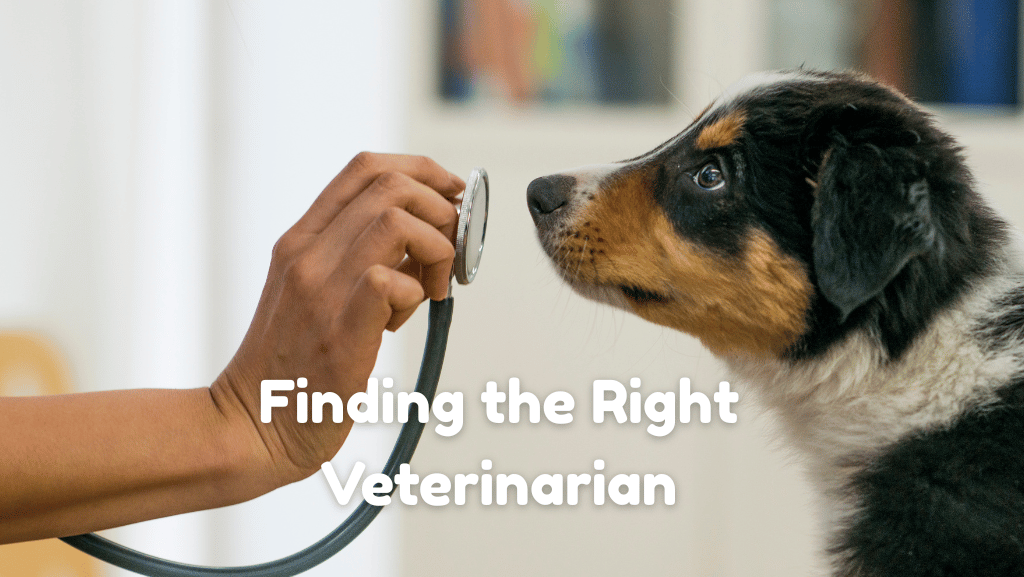Choosing the right veterinarian for your beloved canine companion is one of the most important decisions you’ll make as a dog owner. A good veterinarian becomes your partner in maintaining your dog’s health throughout their lifetime, from puppyhood vaccinations to senior care management. With so many options available, finding the perfect fit requires careful consideration of several key factors.
Start with Research and Recommendations
Begin your search by gathering recommendations from trusted sources. Fellow dog owners, local dog trainers, groomers, and pet store employees often have valuable insights about veterinarians in your area. Online reviews and veterinary association directories can also provide helpful information about practices near you. However, remember that every dog’s needs are different, so what works for one pet may not be ideal for another.
Evaluate Their Credentials and Specializations
Verify that any veterinarian you’re considering is properly licensed and accredited. Look for vets who have graduated from accredited veterinary schools and maintain membership in professional organizations like the American Veterinary Medical Association. Some veterinarians offer additional services and pursue certifications in specialized areas such as surgery, dermatology, or internal medicine, which can be beneficial if your dog has specific health concerns.
Consider whether the practice employs multiple veterinarians with different areas of expertise, such as in-home euthanasia. This can be particularly valuable in metropolitan areas like Dallas, where larger practices often have specialists on staff or maintain referral relationships with veterinary specialists for complex cases.
Assess the Facility and Equipment
Schedule a visit to tour the veterinary facility before making your decision. A well-maintained clinic with modern equipment demonstrates the practice’s commitment to providing quality care. Pay attention to cleanliness, organization, and the overall atmosphere of the facility. The waiting area should be clean and comfortable, with separate spaces for dogs and cats when possible.
Inquire about the diagnostic equipment available on-site, such as digital X-ray machines, ultrasound equipment, and laboratory facilities. Having these resources readily available can expedite diagnosis and treatment, reducing stress for both you and your dog during medical emergencies.
Consider the Location and Accessibility
The proximity of the veterinary clinic to your home is crucial, especially for emergency situations. Choose a practice that’s reasonably accessible from your home and workplace. Consider factors like parking availability, public transportation access, and the clinic’s hours of operation. Some practices offer extended hours or weekend availability, which can be invaluable for busy pet owners.
Emergency care availability is another critical consideration. Determine whether your chosen veterinarian provides after-hours emergency services or maintains relationships with local emergency veterinary hospitals.
Evaluate Their Communication Style and Philosophy
The veterinarian’s communication style should align with your preferences and comfort level. During your initial consultation, observe how the veterinarian interacts with both you and your dog. They should demonstrate patience, listen carefully to your concerns, and explain medical conditions and treatment options in terms you can understand.
Discuss the practice’s approach to preventive care, treatment philosophies, and their stance on various medical procedures. Some veterinarians emphasize holistic approaches, while others focus primarily on conventional medicine.
Financial Considerations and Payment Options
Veterinary care can be expensive, so it’s important to understand the practice’s fee structure and payment policies. Inquire about the costs for routine services like vaccinations, spaying or neutering, and annual examinations. Ask about payment plans, accepted insurance policies, and whether they offer wellness packages that can help spread costs throughout the year.
Making Your Final Decision
Take time to reflect on all these factors before making your choice. Trust your instincts about how comfortable you feel with the veterinarian and their staff. The right veterinary practice will make you feel confident in their ability to provide excellent care while treating you and your dog with respect and compassion.
Remember that building a strong relationship with your veterinarian takes time. Once you’ve made your choice, maintain open communication and don’t hesitate to ask questions about your dog’s health and care. A good veterinarian will welcome your involvement and work collaboratively to ensure your furry friend enjoys a long, healthy, and happy life.




